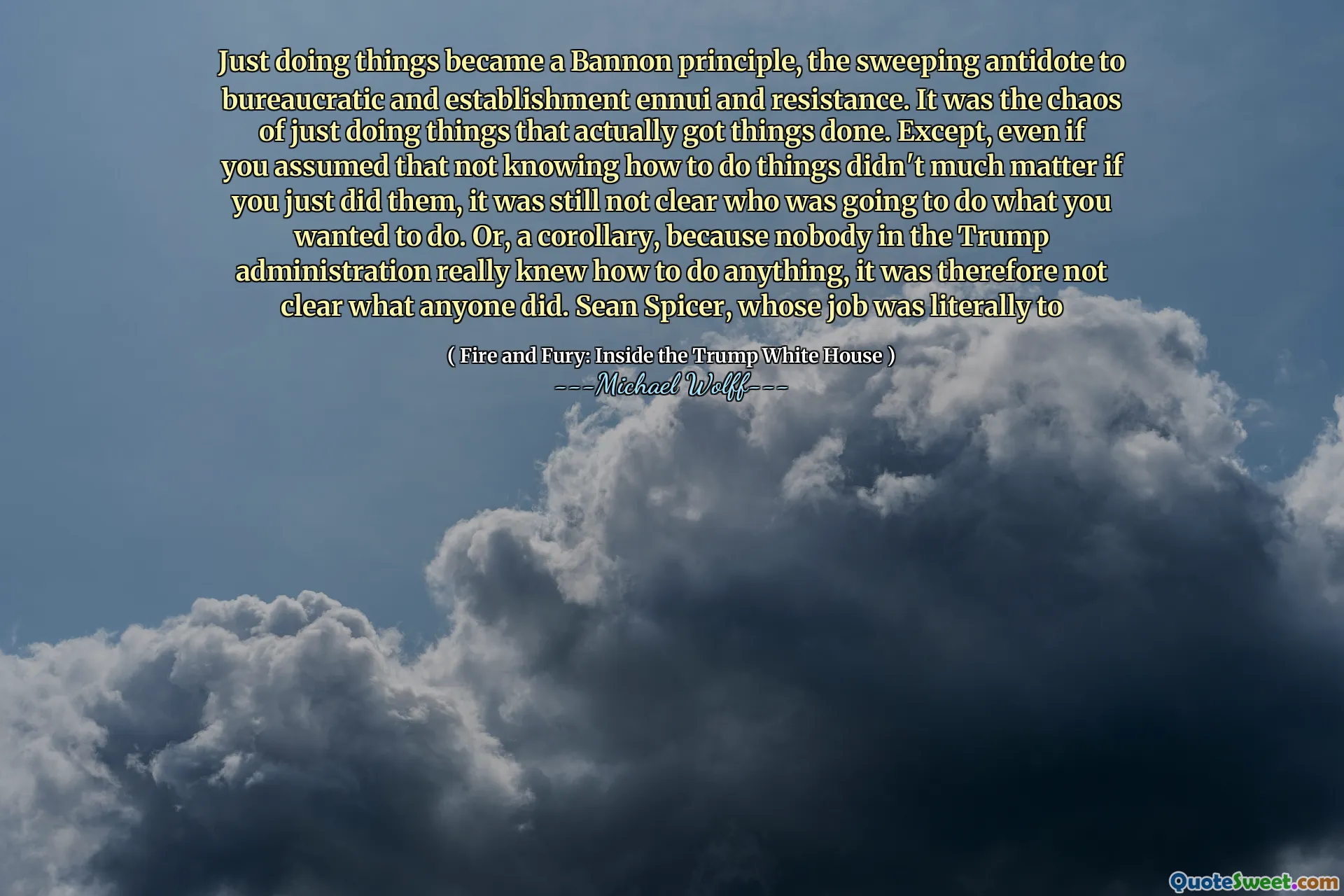
Just doing things became a Bannon principle, the sweeping antidote to bureaucratic and establishment ennui and resistance. It was the chaos of just doing things that actually got things done. Except, even if you assumed that not knowing how to do things didn't much matter if you just did them, it was still not clear who was going to do what you wanted to do. Or, a corollary, because nobody in the Trump administration really knew how to do anything, it was therefore not clear what anyone did. Sean Spicer, whose job was literally to
In "Fire and Fury: Inside the Trump White House," Michael Wolff highlights how the principle of "just doing things" became central under Steve Bannon's influence. This approach aimed to combat the inertia and obstruction often found in bureaucratic systems. The chaotic energy of this method led to some tangible results, yet it raised questions about accountability and clarity within the Trump administration. With many individuals lacking clear expertise, it became difficult to determine who was responsible for specific actions.
Wolff illustrates that the overall confusion stemmed from a lack of defined roles and knowledge among staff members. For example, Sean Spicer, who held a significant position as Press Secretary, faced challenges that exemplified this gap in understanding and governance. The ambiguity surrounding competencies and responsibilities ultimately complicated the administration's effectiveness, even as the push for action persisted.











